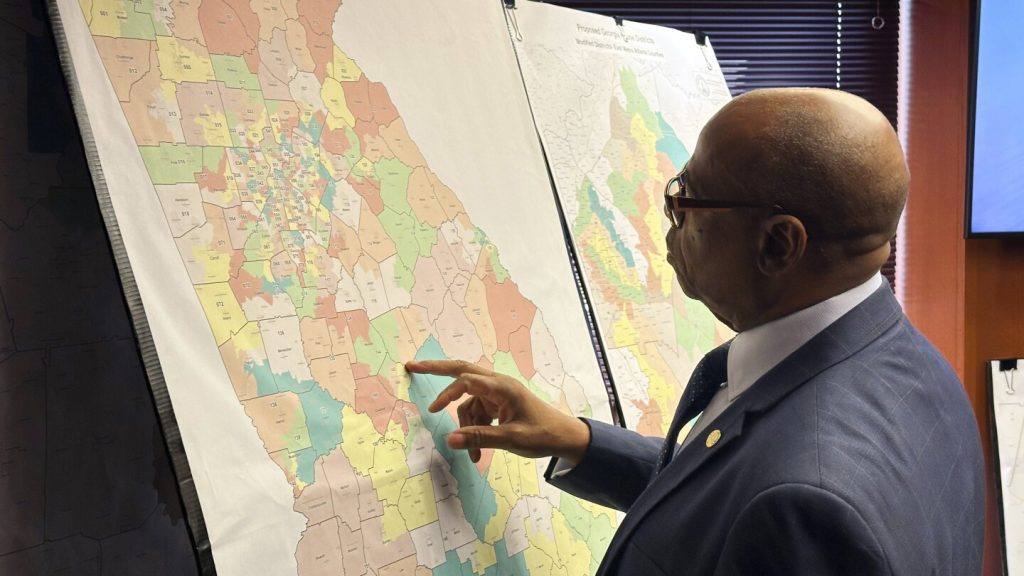A Georgia State House Election Dispute: A Ruling for Stability Amidst Controversy
In a significant decision that has garnered attention across Georgia’s political landscape, Senior Judge Gary McCorvey recently ruled against ordering a new election in House District 128, a race that had become a focal point of controversy. The case stemmed from allegations of voting irregularities, where some voters reportedly received the wrong ballots in the November election. Democratic incumbent Mack Jackson narrowly defeated Republican challenger Tracy Wheeler by a margin of just 48 votes out of 27,804 cast. While the judge acknowledged that 58 voters received incorrect ballots, he concluded that there was insufficient evidence to prove that these errors swayed the race’s outcome. This ruling has brought a measure of closure to the dispute, though it has also sparked discussions about the need for improved election processes.
The Core of the Dispute: Voting Irregularities and Their Implications
The heart of the legal challenge lay in claims that a number of voters outside House District 128 received ballots for the race, while some eligible voters within the district did not. These issues were traced back to potential errors in reassigning voters to the correct districts following redistricting efforts. Wheeler’s legal team argued that these discrepancies could have affected the race’s outcome, given the slim margin of victory. Judge McCorvey, however, underscored that while the mistakes were regrettable, there was no concrete evidence to tie the improper ballots to the election’s result. Specifically, the judge noted that it could not be proven whether the 58 voters who received incorrect ballots had actually voted in the House race, or how they might have influenced the final tally.
A Legal Standard of Proof: The High Bar for Overturning Elections
In his ruling, Judge McCorvey emphasized the importance of meeting a high legal standard when challenging election results. He explained that merely showing that some voters received the wrong ballots does not equate to proving that these errors directly impacted the election’s outcome. The judge wrote, "Voters being provided with an opportunity to vote in the wrong district does not equate to proof by a preponderance of evidence that such voters actually tainted the election by voting in the election at issue." This decision reflects the principle that elections should only be overturned when there is clear and convincing evidence of widespread irregularities that likely changed the result. In this case, Wheeler’s team was unable to meet that threshold, leading to the judge’s decision to uphold the original outcome.
Reactions to the Ruling: A Divide Between Acceptance and Appeal
The ruling has elicited mixed responses from the candidates involved and their supporters. Mack Jackson, the incumbent Democrat, welcomed the decision as a validation of the election’s integrity. He stated, "Everybody wants fair elections, and I believe our elections are fair. And if there’s anything that needs to be worked on, I’m sure we’ll work on it." Jackson, known for his conservative stance within the Democratic caucus, has been a fixture in the Georgia House for nearly two decades, and this victory marks his ninth term in office. On the other hand, Tracy Wheeler and her legal team expressed disappointment with the outcome. Wheeler’s attorney, Jake Evans, indicated that they are considering an appeal, signaling that the legal battle may not be over just yet. Wheeler herself acknowledged the efforts of local election workers, saying, "I firmly believe that all of our local election workers and volunteers acted in good faith and always aim to produce fair and accurate results. With that said, errors can happen."
The Broader Context: House District 128 and Georgia’s Political Landscape
House District 128, as currently configured, encompasses all of Glascock, Hancock, Warren, and Washington counties, as well as portions of McDuffie and Baldwin counties. Notably, most of the voters who received incorrect ballots reside in McDuffie County, located just west of Augusta. This geographic detail highlights the complexity of managing electoral districts, particularly in the aftermath of redistricting. The ruling also underscores the significance of House District 128 in Georgia’s political balance. With Jackson’s win, the Georgia House of Representatives maintains its current composition of 100 Republicans and 80 Democrats. This balance is critical in shaping the state’s legislative agenda, and any potential shifts in district boundaries or election outcomes could have far-reaching consequences for future policymaking.
The Path Forward: Ensuring Election Integrity and Voter Confidence
The outcome of this case serves as a reminder of the challenges inherent in ensuring the integrity of elections while maintaining voter confidence. While the ruling upheld the results of the race in House District 128, it also highlighted areas for improvement in the electoral process. Efforts to prevent similar discrepancies in future elections will likely involve enhanced voter education, improved communication between election officials and voters, and potentially updated technologies to manage district assignments more effectively. For now, the decision to uphold the election result provides a measure of stability, even as it leaves unanswered questions about the potential impact of voting errors. As Georgia and other states continue to navigate the complexities of election administration, cases like this will remain an important part of the conversation about fairness, accuracy, and trust in the democratic process.












